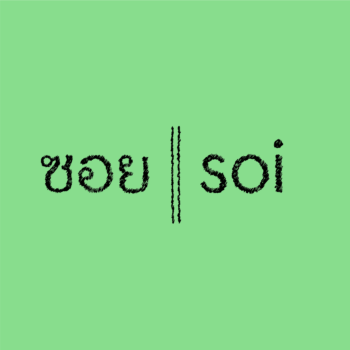
ก้อง ฤทธิ์ดี เป็นทั้งศิษย์ไม่มีครูและนักอ่านงานวรรณกรรมผู้หิวกระหาย หลายคนจดจำเขาได้ดีจากงานเขียนที่แฝงทั้งอารมณ์ขันแบบประชดประชันเหน็บแนม ไหวพริบอันหลักแหลม ไปจนถึงโทนน้ำเสียงแสนนอบน้อมถ่อมตน คุณลักษณะเหล่านี้เผยตัวออกมาให้เห็นในงานวิพากษ์วรรณกรรม ตลอดจนผลงานแปลที่เขามักเรียกว่าเป็นกิจของการแปลงลิ้น ‘เจ้าของภาษา’ ให้เข้าปาก ‘คนภาษาอื่น’ (กรณีนี้คือการแปลจากไทยเป็นอังกฤษ) ในบทสัมภาษณ์ชิ้นนี้ ก้องชวนเราพูดคุยเกี่ยวกับศิลปะของการพากย์เลียนเสียง (ventriloquism) ความเป็นนายของภาษา และการฝันใฝ่ในภาษาอื่นยามเมื่อเขาลงมือทำงานในฐานะนักแปล
ก้องทำงานเป็นนักเขียนเต็มตัวและรับหน้าที่ดูแลคอลัมน์วัฒนธรรมของบางกอกโพสต์มายาวนานกว่าสองทศวรรษ (ตั้งแต่พ.ศ. 2539 – 2561) ข้อเขียนของเขาครอบคลุมพื้นที่ของภาพยนตร์ วรรณกรรม ทัศนศิลป์ต่างๆ ตลอดจนเรื่องราวทางการเมือง ตั้งแต่ปีพ.ศ. 2562 เป็นต้นมา เขาดำรงตำแหน่งรองผู้อำนวยการหอภาพยนตร์แห่งประเทศไทย ส่วนหนึ่งปีก่อนหน้านั้น เขาได้แปลหนังสือผลงานซีไรต์เรื่อง ไส้เดือนตาบอดในเขาวงกต ของวีรพร นิติประภา ออกมาเป็นภาษาอังกฤษ จากนั้นไม่นาน เขาบรรยายภายใต้ชื่อหัวข้อ ‘แอนดรอยด์ฝันเป็นพจนานุกรมคำพ้องได้หรือไม่?’ โดยจัดขึ้นที่สยามสมาคม บทบรรยายนั้นบอกเล่ากระบวนการแปลวรรณกรรมดังกล่าว ตลอดจนสิ่งที่ตกตะกอนจากการทำงานชิ้นนั้น ภายหลังเนื้อหาจากการบรรยายครั้งนั้นถูกปรับออกมาเป็นบทความในชื่อเดียวกัน (รอติดตามบทความสองภาษาชิ้นนี้ได้ทาง s-o-i.io เร็วๆ นี้)
ปัจจุบัน ก้องกำลังแปลหนังสือพุทธศักราชอัสดงกับทรงจำของทรงจำของแมวกุหลาบดำ ผลงานซีไรต์อีกชิ้นของวีรพร โดยคาดว่าน่าจะได้ตีพิมพ์ในปีนี้ ส่วนผลงานชิ้นถัดไปที่เขาเตรียมแปลออกมาเป็นภาษาอังกฤษ คือหนังสือรวมงานเขียนของอารยา ราษฎร์จำเริญสุข
1
1) ถ้าให้เปรียบเทียบกิจของการแปลกับอุปมาอุปไมยสักอย่าง คุณคิดว่าการแปลเหมือนกับอะไร? แล้วทำไมถึงเป็นแบบนั้น?
การแปลคือ ‘การพากษ์เลียนเสียง’ ผมพูดออกมาแต่มันไม่ใช่น้ำเสียงของผมเอง นักแปลต้องรู้ซึ้งถึงความจริงข้อนี้ดี ผมจึงรู้สึกตลกพิลึกเวลานักแปลบางคนกระเหี้ยนกระหือรือที่จะเซ็นหนังสือที่พวกเขาแปล (ในประเทศไทยเองก็มีคนแบบนี้อยู่เยอะ) ก็ไม่รู้ว่าจะทำอย่างนั้นไปทำไม? ในเมื่อมันไม่ใช่หนังสือของคุณซะหน่อย ไม่ใช่สุ้มเสียงของคุณด้วยซ้ำ ที่จริงมันคือการออกโรงของคุณกับตัวบท เป็นเหมือนมหรศพไร้เสียงของต้นฉบับ ผมคิดว่าเพอร์เฟอร์แมนซ์จำพวกนี้ยิ่งสลับซับซ้อนขึ้นในกรณีที่ผม (ซึ่งไม่ได้ใช้ภาษาอังกฤษเป็นภาษาแรก) จะต้องสวมรอยน้ำเสียง ไปจนถึงกระแสสำนึกของนักเขียน (ซึ่งเขียนและคิดในภาษาไทยเสียเป็นส่วนใหญ่) แล้วแปลความมันไปเป็นภาษาอังกฤษ (ซึ่งทั้งผมและนักเขียนคนนั้นต่างก็ไม่ใช้มันในการสื่อสารประจำวัน) ในทางหนึ่ง พวกเรา (ทั้งนักเขียนและนักแปล โดยเฉพาะนักแปลด้วยนะ) ทำงานอยู่ภายใต้กฎเกณฑ์และเอกสิทธิ์ของภาษาอื่น ในกรณีนี้ก็คือภาษาอังกฤษ แต่ขณะเดียวกัน ผมยังนึกครึ้มอกครึ้มใจเสมอเวลาคิดว่า พวกเรา (ทั้งนักเขียนและนักแปล) ได้เข้ายึดครองภาษาอังกฤษผ่านการฉวยใช้และดัดแปลงภาษานั้น เพราะการแปลก็เป็นการแทรกซ้อนความรู้สึกนึกคิดของเราลงไปในภาษานั้นๆ อาจฟังดูเหมือนแฟนตาซีของการแก้แค้นอะไรเทือกๆ นี้ แต่แล้วไงล่ะ
ผมหยิบยืมความคิดจากฟิลิป เค. ดิก (Philip K. Dick) มาสร้างอุปมาเกี่ยวกับแอนดรอยด์ผู้ฝันเป็นพจนานุกรมคำพ้อง (thesauruses) เพื่อฉายความทะเยอทะยานและความรู้สึกอิหลั่กอิเหลื่อในตัวผมเอง นั่นคือ การขวนขวายที่จะสวมตัวเองลงในภาษาที่ผมไม่ได้พูดมาตั้งแต่เกิด หรือภาษาที่ผมไม่ควรจะใช้พูด (หรือเขียน) รวมไปถึงการพยายามอย่างเอาเป็นเอาตายที่จะสิงสู่ความรู้สึกนึกคิดในภาษานั้น อันจะช่วยหนุนส่งตัวผมให้ฝึกฝนภาษาอังกฤษได้จนเชี่ยวชาญ ผมไม่ได้คิดเป็นภาษาอังกฤษ หรือถ้าผมเกิดทำแบบนั้นขึ้นมา มันก็ไม่เคยเพอร์เฟ็คเลย แต่ผมหรือใครก็ตามย่อมสามารถฝันในภาษาอะไรก็ได้ที่เราต้องการ มันจริงจนกระทั่งคุณต้องส่งมอบความฝันนั้นไปยังบรรณาธิการนั่นแหละ
ถึงอย่างงั้นก็เหอะ มันก็ไม่ได้เป็นเรื่องชวนฝันขนาดนั้นหรอกนะ ที่จริงทั้งหมดก็คือน้ำพักน้ำแรงที่ลงไปในการทำงาน ความฝันใฝ่ในอีกภาษานั้นอาจเป็นเรื่องชวนเหนื่อยหน่าย แต่ก็อย่างที่ปรมาจารย์โยดาของอัศวินเจไดได้เคยพูดไว้ว่า “จะทำหรือไม่ทำ ไม่มีคำว่าจะพยายาม!”
2
2) ถ้างานแปลจัดเป็น ‘การกระทำ’ รูปแบบหนึ่ง คุณลงมือ ‘กระทำการแปล’ ครั้งแรกเมื่อไหร่?
ไม่รู้สิ บางทีอาจเริ่มตั้งแต่ตอนที่ผมยังเป็นเด็กน้อย แล้วต้องแปลท่วงท่าต่างๆ ของผู้คนรอบตัวก็ได้นะ? หรืออาจจะเป็นตอนที่ผมพยายามตีความโคลงกลอนในคัมภีร์อัลกุรอานซึ่งทั้งสวยงามและมีความเป็นคิวบิสต์ซะเหลือเกิน ราวๆ ช่วงต้นทศวรรษที่ 1990 ผมทำงานแปลบทความด้านไอทีลงนิตยสารคอมพิวเตอร์ นั่นนับว่าเป็นงานแรกในฐานะนักแปลที่ได้รับค่าจ้าง ย้อนไปในตอนนั้น ผมยังไม่ได้คิดถึง ‘การกระทำ’ หรือ ‘ความฝันใฝ่’ หรือ ‘การพากษ์เลียนเสียง’ (อันที่จริง ผมก็ยังไม่ได้คิดถึงมันเท่าไหร่อยู่ดีนะ จนกระทั่งคุณถามมานี่แหละ!) แต่ที่แน่ๆ การแปลทำให้ผมรู้ซึ้งถึงคุณค่าของการถ่ายโอนความรู้ ความคิด หรือความรู้สึกต่างๆ จากภาษาหนึ่งไปสู่อีกภาษาหนึ่ง
3
3) ในฐานะนักวิจารณ์ภาพยนตร์ บรรณาธิการและสื่อมวลชนเก่า คุณคิดว่างานแปลของคุณได้รับอิทธิพลจากความสนใจหรือกิจกรรมอื่นๆ ในชีวิตบ้างรึเปล่า?
ผมทำงานเป็นสื่อมวลชนมานานกว่า 20 ปี ในช่วงเวลานั้น ผมต้องแปลความคิดและคำพูดต่างๆ แทบทุกวัน เริ่มต้นจากการแปลอยู่ในหัวตัวเอง จากนั้นจึงแปลให้กลายเป็นภาษาอังกฤษ ผมเรียนรู้อะไรมากมายจากการทำงานกับเจ้าของภาษา ตั้งแต่เรียนรู้ตัวภาษาและการใช้งานภาษานั้นๆ ไปจนถึงการกระชับอำนาจผ่านการแปลความคิดและคำพูดของผู้คนให้อยู่ในขอบเขตของจำนวนตัวอักษรอันจำกัด ผมว่าคนเราแปลสิ่งต่างๆ อยู่ตลอดเวลานะ แม้ว่าจะรู้ตัวบ้างหรือไม่รู้ตัวบ้างก็ตามที
คนเดี๋ยวนี้ชอบพูดถึงการ ‘ตีความ’ ภาพยนตร์และไขสัญญะปริศนาที่แอบซ่อนอยู่ในภาพตรงหน้าอะไรอย่างนี้ ตัวผมเองก็เคยรู้สึกสนุกกับการทำอะไรแบบนั้นอยู่นานโข จนกระทั่งได้อ่านหนังสือชื่อ Against Interpretation [ทวนท้าปัญหาการตีความ] ของซูซาน ซอนแท็ก (Susan Sontag) แล้วในหัวก็นึกขึ้นมาว่า ‘อะไรวะเนี่ย’ (เออ ผมก็ชอบงานของบาร์ตส์ด้วยนนะ โดยเฉพาะบทความชื่อ “Steak and Chips”) ผมว่าการแปลอะไรให้เป็นไปตามความรู้สึกยังถือเป็นเรื่องสำคัญ มันเป็นเหมือนการทดแทนความจริงที่ว่าผมไม่สามารถ ‘รู้ซึ้ง’ ถึงทุกอย่างในโลกนี้ได้ ไม่ว่าสิ่งนั้นจะเป็นภาพยนตร์ หนังสือ ดนตรีสักชิ้น หรือถ้อยแถลงทางการเมืองสักอย่าง ผมจะพยายามจับความรู้สึกของมันขึ้นมาก่อน นี่อาจไม่ใช่วิธีที่ดีที่สุดก็ได้ แต่ผมก็ถูไถกับมันมาด้วยวิธีประมาณนี้แหละ
4
4) ในฐานะนักแปล คุณมองงานของคุณว่ามีความเกี่ยวพันกับการเมืองบ้างมั้ย?
ไม่รู้เลยแฮะ บางทีอาจารย์ที่สอนทฤษฎีหลังอาณานิคมอาจตอบคำถามนี้ได้ดีกว่าผมก็ได้ ส่วนผมเองทำงานแปลภาษาไทยให้เป็นภาษาอังกฤษ (บางคนบอกว่าเป็นภาษาที่ ‘เลิศเลอ’ กว่า?) ผมเล่นล้ออยู่กับลิ้นทางวรรณศิลป์ที่ไม่ใช่ภาษาแม่ของตัวเอง ในแง่หนึ่ง ภาษานั้นก็ควบคุมกำกับผมอยู่ (แปลว่า ผมจำต้องเดินตามกฎอันเคร่งครัด เมื่อใดที่แหกกฎนั้นก็จะถูกเฆี่ยนตีทันที) แต่ในอีกแง่ ผมก็เป็นนายของมันได้ด้วย (ถ้อยคำของผมและบรรดานักประพันธ์ที่ถือชัยเหนือภาษานั้น) ผมก็เป็นเหมือนสายลับสองหน้าที่ฝักใฝ่ในภาษาของศัตรูตัวเองยังไงล่ะ!
5
5) ในฐานะนักอ่านผู้ฝักใฝ่ในวรรณกรรม มีหนังสือเล่มไหนบ้างที่คุณมักกลับมาเปิดอ่านอยู่บ่อยครั้ง หรือมีนักเขียนคนไหนบ้างที่จุดประกายให้คุณได้เรียนรู้อะไรต่อมิอะไรเพื่อเอามาปรับใช้กับงานเขียน/งานแปล?
ถ้าต้องติดอยู่ในการประชุมที่ยืดยาว ผมจะหันไปหางานพวกซิมโบลิสต์ (ในฉบับแปลอังกฤษ) ถ้าหากวันล่มสลายของโลกกำลังใกล้เข้ามา (ที่จริงมันประชิดตัวเราอยู่เสมอนะ) ผมก็จะหันไปอ่านงานจากลาตินอเมริกา (ในฉบับแปลอังกฤษ) ส่วนในช่วงวันรอมฎอน ผมก็จะเปิดคัมภีร์อัลกุรอาน (ในฉบับแปลอังกฤษอีกเช่นกัน) ผมเก็บเล็กผสมน้อยจากสิ่งต่างๆ เหล่านี้แหละ
6
6) คุณคิดว่าอะไรคืออุปสรรคของวรรณกรรมไทยในการเข้าถึงนักอ่านทั่วโลก?
ก่อนอื่นเลย เราต้องเริ่มจากการแปลหนังสือภาษาไทยให้เยอะกว่านี้ วรรณกรรมไทยไม่มีที่ทางอะไรชัดเจนบนแผนที่ทางวรรณกรรมของโลก พอๆ กับผลิตผลทางวัฒนธรรมอื่นๆ ของไทยที่ยังไม่เคยไปถึงฝันนั่นแหละ ประเทศเกาหลีถือเป็นตัวอย่างที่ดีในเรื่องพวกนี้ พวกเขาประสบความสำเร็จในการตีตลาดภาพยนตร์และวัฒนธรรมดนตรี และตอนนี้คนเกาหลีก็กำลังเคี่ยวกรำผลักดันงานวรรณกรรมเช่นเดียวกับงานวัฒนธรรมสาขาอื่นที่พวกเขาชิงชัยมาได้แล้ว ย้อนกลับมาดูเราบ้าง เวลาเอ่ยถึงผลงานและผู้อ่านวรรณกรรมไทย จะเป็นในสหราชอาณาจักรหรือออสเตรเลียก็ได้ ผู้คนไม่มีภาพอะไรในหัวเลยว่าวรรณกรรมไทยมีหน้าตาเป็นยังไงบ้าง นอกจากนี้ พวกเรายังต้องการแรงสนับสนุนจากภาครัฐ พวกเขารู้อยู่แก่ใจว่าการส่งเสริมงานแปลและการพิมพ์หนังสือมันง่ายกว่า แถมยังราคาถูกกว่าการทุ่มเงินให้กับภาพยนตร์มหากาพย์ชาตินิยมอะไรเทือกนั้นตั้งเยอะ
Kong Rithdee is a voracious autodidact and reader of literature, best known for his tongue-in-cheek humour, distinctive wit and consistent humbleness. These qualities undeniably inform his practice of cultural criticism and, more importantly, translation from a ‘native’ to ‘non-native’ tongue (Thai to English), as he calls it. In this interview, he reflects on the question of ventriloquism, mastery and the right to dream in another language when performing the task of the translator.
Helming the cultural desk of the Bangkok Post for over two decades (1996-2018), Kong writes full-time on film, literature, visual art and politics. Since 2019, he is deputy director of Thai Film Archive. He translated Veeraporn Nitiprapha’s S.E.A.Write award-winning novel The Blind Earthworm in the Labyrinth [ไส้เดือนตาบอดในเขาวงกต] in 2018, and subsequently reflected on undertaking such a task in Do Androids Dream of Electric Thesauruses, a lecture he delivered at Siam Society and later adapted into an essay of the same title (soon to be published bilingually on s-o-i.io). Hopefully this year, his translation of her second novel, Memories of the Memories of the Black Rose Cat, will be published. His next commission is to translate a book of essays by Araya Rasdjarmrearnsook.
1
What metaphor would you use to describe your approach to translation and why?
Translation is ventriloquism. To speak but not with my own voice, and the translator must always realise that. I think it’s very strange that some translators are eager to autograph books they’ve translated (happens in Thailand a lot). Why? It’s not your book; it’s not your voice. It’s just your performance of the text, a pantomime of the original. That performance is especially complicated, I think, when I (non-native English speaker) have to assume the voice and thus the consciousness of the writer (who, in most cases, is writing and thinking in Thai) and interpret it into English (the language not spoken at home neither by me nor the writer). In a way, we (writer and translator, but especially the translator) are being subjected by the rules and prerogatives of the other language, the English language. But I’d also like to entertain the idea that we (writer and translator) are at the same time colonising the English language – appropriating it and turning it to our advantage by imposing our consciousness upon it. It may be just a revenge fantasy of some sort, but why not.
I came up with the metaphor of the android who dreams of electric thesauruses (borrowing it from Philip K. Dick) to show my ambition and ambivalence, my struggle to perform in the language I was not born to speak or am not supposed to be speaking (or writing) and my desperate attempt to possess the consciousness required to master that language. I don’t think in English, or when I have to, it’s not perfect. But I, we, can always dream in any language we want — until you submit that dream to the editor.
Anyway, there’s no romance. There’s only labour. Dreaming in another language is exhausting. But as Yoda the Jedi Master said, “Do or do not, there is no try!”
2
If translation is an ‘act’, what do you consider as your first act of translation?
I don’t know. Maybe when I have to translate the actions of people around me when I was a child? Or when I tried to interpret Quranic verses, so beautiful, so cubist. Around the early 1990s I translated English IT articles for a Thai computer magazine, that was my first paying job as a translator. Back then I didn’t think about ‘acting’ or ‘dreaming’ or ‘ventriloquism’ (in fact I still didn’t think about it so much until you asked me!), but it certainly helped me appreciate the value of transferring knowledge or ideas or feelings from one language to another.
3
As a film critic, former editor and journalist, how do your other interests or practices influence your translation work?
I worked as a journalist for over 20 years and I found myself translating ideas and speeches, first into my own head then into English, almost every day. I learnt a lot from working with native speakers — learning language, usage, and also the tyranny of interpreting people’s speeches and thoughts to fit a limited space. I think we translate something all the time, consciously or not.
People talk a lot about ‘interpreting’ movies and unlocking secret signifiers hidden in plain sight, etc, etc, and I had fun doing that for a long time until I read Susan Sontag’s Against Interpretation and I thought, wtf. (I love Barthes too, by the way, especially Steak and Chips). I think it’s as important to translate something as to feel it. To compensate for my inability to ‘understand’ everything, I try to feel it first, either a movie or a book, or a piece of music or a political statement. It’s not always the best strategy, but I have gotten by, somehow.
4
How would you politicise your role as a translator?
I really don’t know. Maybe professors in post-colonial studies can answer this better. I translate Thai into English (the “superior” language?). I play-act in the tongue not spoken by my mother. So I’m being enslaved by that language (I have to follow its strict rules and get whipped when I break them) at the same time as I’m its master (my words and the writers’ words conquering that language). I’m a double agent, the spy who loves the enemy’s language!
5
As an ardent reader of literature, can you name any book(s) that you always revisit or author(s) you have learned a lot from as a writer/translator?
Whenever a meeting goes on for too long, I turn to the Symbolist (in English translation). When the apocalypse is near (it’s always near), I turn to the Latin American (in English translation). During Ramadan, I read the Quran (in English translation). I learn a bit of everything from them.
6
What do you think are the obstacles for contemporary Thai literature in reaching global readers?
First, we need more Thai books to be translated. We start from there. Like other cultural products, Thai literature doesn’t have a clear position in the global literature atlas. The Korean have succeeded in securing that position with film and music and now they’re working hard to do the same with literature, for instance. But mentioning Thai literature and readers in, say, the UK or Australia have absolutely no mental image of what it is. We also need more support from the state; it’s much easier and cheaper to fund a translation and publication of a book than, say, to fund a nationalist epic film.


ซอย สควอด |
soi squad
ซอย | soi or ‘soi squad’ accounts the practices of writing, translating, and publishing for its transformative power in giving an access to knowledge. This stance has driven us to explore these practices through multiple facets.
ซอย | soi or ‘soi squad’ accounts the practices of writing, translating, and publishing for its transformative power in giving an access to knowledge. This stance has driven us to explore these practices through multiple facets.
